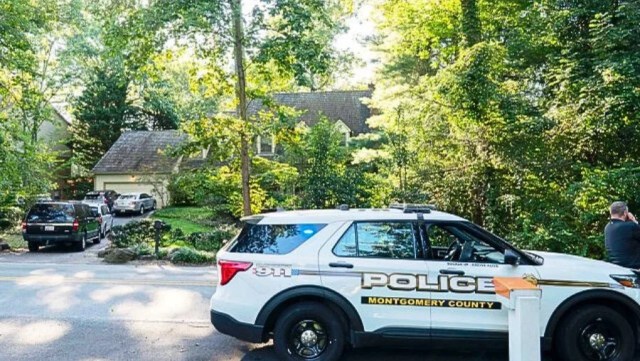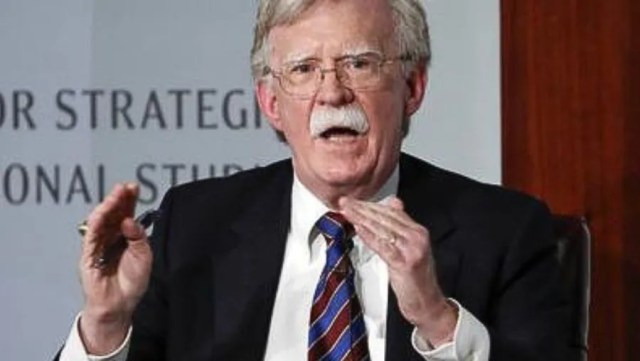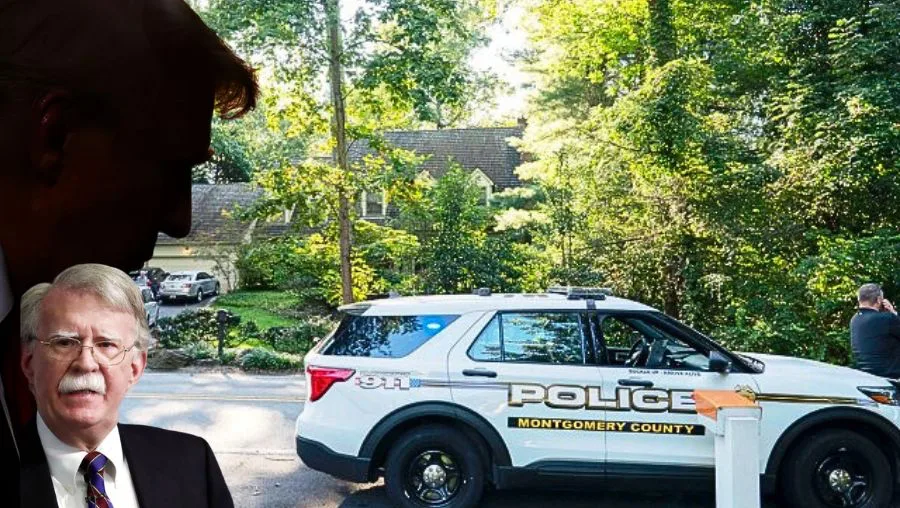It is an image that imprints itself indelibly into the chronicle of American democracy: heavily armed FBI agents carry empty boxes into the home of John Bolton in Bethesda, Maryland. It is August 22, 2025, an inconspicuous summer day, and yet it marks a moment that goes far beyond the private conflict between a president and his former national security adviser. What is happening here is more than a search. It is a lesson about the fragility of the rule of law when it lies in the hands of a man who understands his power not as an obligation but as a weapon. John Bolton, once Trump’s third national security adviser, is many things: a hardliner of the old Republican school, a man with sharp-edged views on Iran, North Korea and Afghanistan, a declared warmonger, as critics say. But he is also one of the few Republicans who, after breaking with Trump, found the courage to stand openly against him. His book “The Room Where It Happened” is considered a reckoning with a president he describes as ignorant, impulsive and dangerous. Since its publication in 2020, Bolton has been on a blacklist - in Trump’s cosmos marked as a traitor, as an enemy, as a target.

That it is he of all people who now becomes the center of a high-profile raid may be legally explained as “handling classified material.” Politically, however, it looks like a targeted strike. The official justification: Bolton may have improperly handled classified information. But this accusation is old, long since dismissed by courts that dropped the cases against him. Now the revival, this time under a president who directs the FBI in a way that shocks even hardened observers. Kash Patel, now FBI director and once one of Trump’s most loyal followers, had already written Bolton years ago in a book into the ranks of the “Executive Branch Deep State.” That it is now under his leadership that Bolton’s house is searched turns the appearance of personal retribution into certainty. Patel commented cryptically on the platform X: “No one is above the law … FBI agents in action.” Attorney General Pam Bondi added: “America’s security is non-negotiable. Justice will be pursued. Always.” Words that in their pathetic absolutism sound less like sober rule of law than like the rhetoric of a government that wants to mark and destroy enemies. The symbolism is unmistakable. Bolton, who once experienced Trump from the inside and stood against him, becomes the target in his own house. FBI agents search not only his living quarters but also his office in Washington. Passersby see him approached by agents in the lobby of his office building. Cameras are on site. The image is set: the critic is publicly exposed, the message clear - anyone who stands against the president must expect consequences.

This pattern is not an isolated case. It fits into a series of measures that all have the same core: the transformation of judicial and security agencies into tools of personal revenge. Already on his first day in office in 2025 Trump revoked the security clearances of more than four dozen former intelligence officials, including Bolton. A few weeks later came the withdrawal of personal protection for a number of prominent critics. Now the search. It is an escalation in stages, each clearly calculated, each a signal to friends as well as foes: loyalty protects, dissent destroys. Bolton himself called Trump’s second term a “Retribution Presidency.” It is an apt diagnosis. Trump does not act out of the impulse of the moment, but out of a deeply rooted need to avenge every perceived affront. Bolton’s betrayal, the tell-all book, the constant television interviews - all that could not remain unanswered in his logic. Now the answer is here, in the form of a demonstration of state power that erases the line between legitimate law enforcement and personal feud. That this approach has parallels to the past is a bitter irony. In 2022 the FBI had searched Trump’s Mar-a-Lago estate and seized classified documents. Trump and his followers then screamed of “political persecution,” of “weapon abuse of the state.” Today, however, Trump is using the same method he once condemned - only this time against his own opponents.

The political landscape of America is changing dramatically under this pressure. Democratic opponents such as Senator Adam Schiff or New York Attorney General Letitia James suddenly face investigations into alleged economic crimes. Even Jack Smith, the former special counsel against Trump, is now the target of an oversight body. A climate emerges in which justice is no longer perceived as an independent power but as the extended fist of the president. Bolton’s case is of particular symbolic power because it does not fit the usual pattern. He is not a Democrat, not a representative of the “liberal elite,” not a member of the left spectrum. He is a man from the ranks of the Republicans, deeply rooted in the tradition of Republican foreign policy. That he is now declared an enemy shows that Trump is not concerned with ideology but with total loyalty. Whoever withdraws will be destroyed - regardless of party affiliation, merits or life’s work. The consequences are far-reaching. They affect not only Bolton personally but the institutional architecture of the United States. When presidents use their security agencies to conduct personal vendettas, the rule of law is degraded to an instrument of the ruler. The separation of powers, this foundation of the American Constitution, is hollowed out, its principles perverted. The message to future presidents is fatal: whoever wants to can use justice as a weapon - a breach of taboo that, once committed, can hardly be undone.

John Bolton himself has so far reacted cautiously. In interviews he hinted that Trump had already acted against him before - by revoking his security clearances, by cutting his personal protection. Now the pattern is unmistakable. He spoke of a president who “does not forget and does not forgive.” Words that are both accusation and warning. History knows many examples of leaders who turned their institutions into weapons. But in the American context it is unprecedented for a president to so openly transfer his personal feuds into the sphere of law enforcement. It is as if the boundary between state and person has disappeared. The president is no longer the first servant of the state, but the state becomes the servant of the president. Bolton’s raid is therefore more than a chapter in the eternal Trump drama. It is a test case for the future of American democracy. The question is not whether John Bolton improperly stored classified documents - this discussion has long been held, the cases dismissed. The question is whether a democracy can survive when its institutions degenerate into tools of personal retribution. In Bethesda on that Friday morning boxes were carried, doors opened, rooms searched. But in truth more than a house was searched. It was the search for the last remnants of an order that was once proud of its checks and balances. An order that risks perishing in a presidency of retribution.
Investigative journalism requires courage, conviction – and your support.

Wie Kamala Harris im Wahlkampf sagte „Trump geht mit einer Racheliste ins WH“
Und genau so ist es.
Schritt für Schritt werden politische Widersacher ins Vusier genommen.
Menschen die angeblich eine Hexenjagd gegen Trump inszeniert haben.
Gegen Trump waren alle Ermittlungen „Missbrauch der juristische Mittel“
Aber umgekehrt ist es vollkommen ok. Da ist die legitime Arbeit zum Schutz Amerikas.
…ja, aber jeder krug bricht, auch seiner wird brüchiger
So scheint es. Die Frage ist nur, wie weit die amerikanische Demokratie (und mit ihr Demokratien weltweit) ebenso brüchig werden wird.